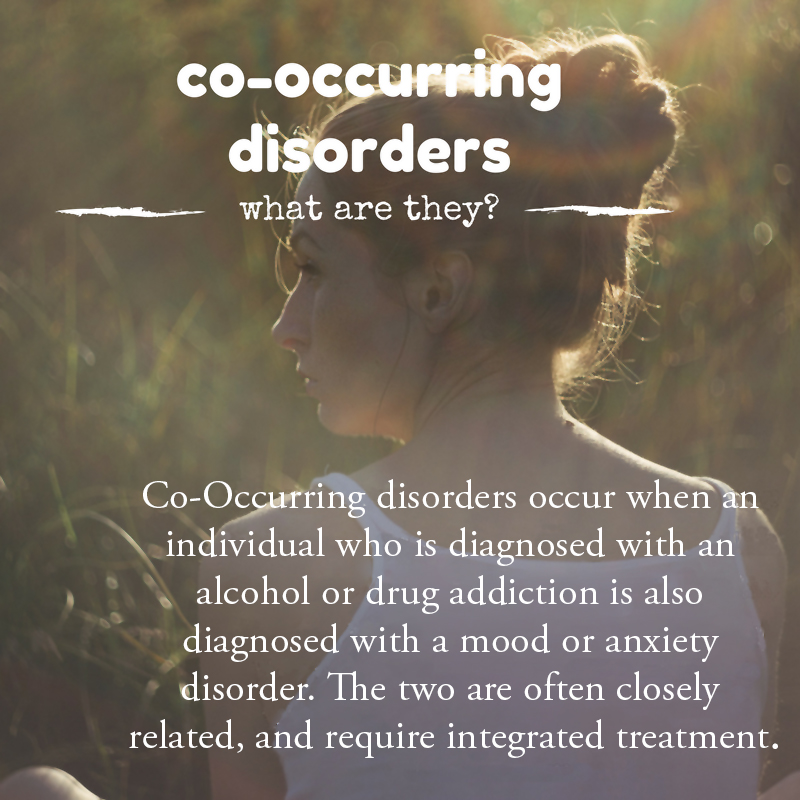
Co-Occurring Disorders
Co-Occurring Disorders
What is it?
The term “co-occurring disorder” may seem to be abstract, but it is a pretty simple concept- simple but difficult for those who are affected by it. In fact, although the term is somewhat new, the concept is not. You may recognize it as dual disorder or dual diagnoses.
With a co-occurring disorder, a person has been diagnosed with a substance use disorder and mental health disorder. Some examples include alcohol addiction coupled with depression. In this case, the person may see alcohol as a way to numb painful psychological feelings, or to become more “alive” when they are feeling too numb. As you may be able to see, this is not a very effective strategy and often leads to worsening symptoms.
Who suffers?
Up to half or more of people who suffer from severe mental health conditions also suffer from an addiction. It can occur at any age, to any person. Substance use is considered a negative coping mechanism. Those who have developed a mental health condition are often suffering from something else and use substances as a way to deal or cope.
Why does it happen?
Well, it may not be easy to tell. Each person is dealing with a unique situation. In fact, in some or many cases, a person is dealing with more than one condition. They may be suffering from bipolar disorder and schizophrenia. Or in other cases it won’t be that extreme such as with more common disorders like social anxiety and depression. These type of mood disorders are often misunderstood and cause problems within a person’s social support system. When that the social support breaks down, self-medication can seem to be a way to compensate. Unfortunately, substance use only worsens the symptoms of mood disorders while also carrying with it the weight of interference with other parts of life. When these other systems break down learning to cope positively seems to become less of a possibility. Then, the cycle of addiction sets in causing disorders to co-occur. The opposite may also be true for some people. For example, a person may turn to drugs and alcohol during a difficult part of their life but when they aren’t suffering from a mental health problem. Then as time goes on, the abuse causes mood swings and eventually disorders that also require treatment. Since they are both biologically based, it makes sense that they would constantly be interacting with one another.
How is it treated?
Co-occurring conditions are treated with integrated treatment. Integrated treatment is a comprehensive, customized treatment option. With integrated treatment, the entire person is being treated at once with the same resources. The idea is for the different treatment providers to coordinate the appropriate care needed for each unique situation. Often the plan is to create an environment where the person is able to gain hope and knowledge; develop tools to succeed later on; and create an effective support system.
At Lifeline Connections, we offer many treatment options. We care about overcoming the addiction, but also dealing with the rest of the story. We want to give you the best fighting chance at a life free from the cycle of addiction. We offer custom treatment plans, personal recovery wellness coaches, and wellness tools. We have individual therapy, pet therapy, and yoga. We offer psycho-education and many recreational and social outlets. We want to hear from you, so please give us a call or email with questions.
Phone: 360-397-8246 ext. 7580
Email: [email protected]
Keywords: residential treatment vancouver, substance use treatment portland
